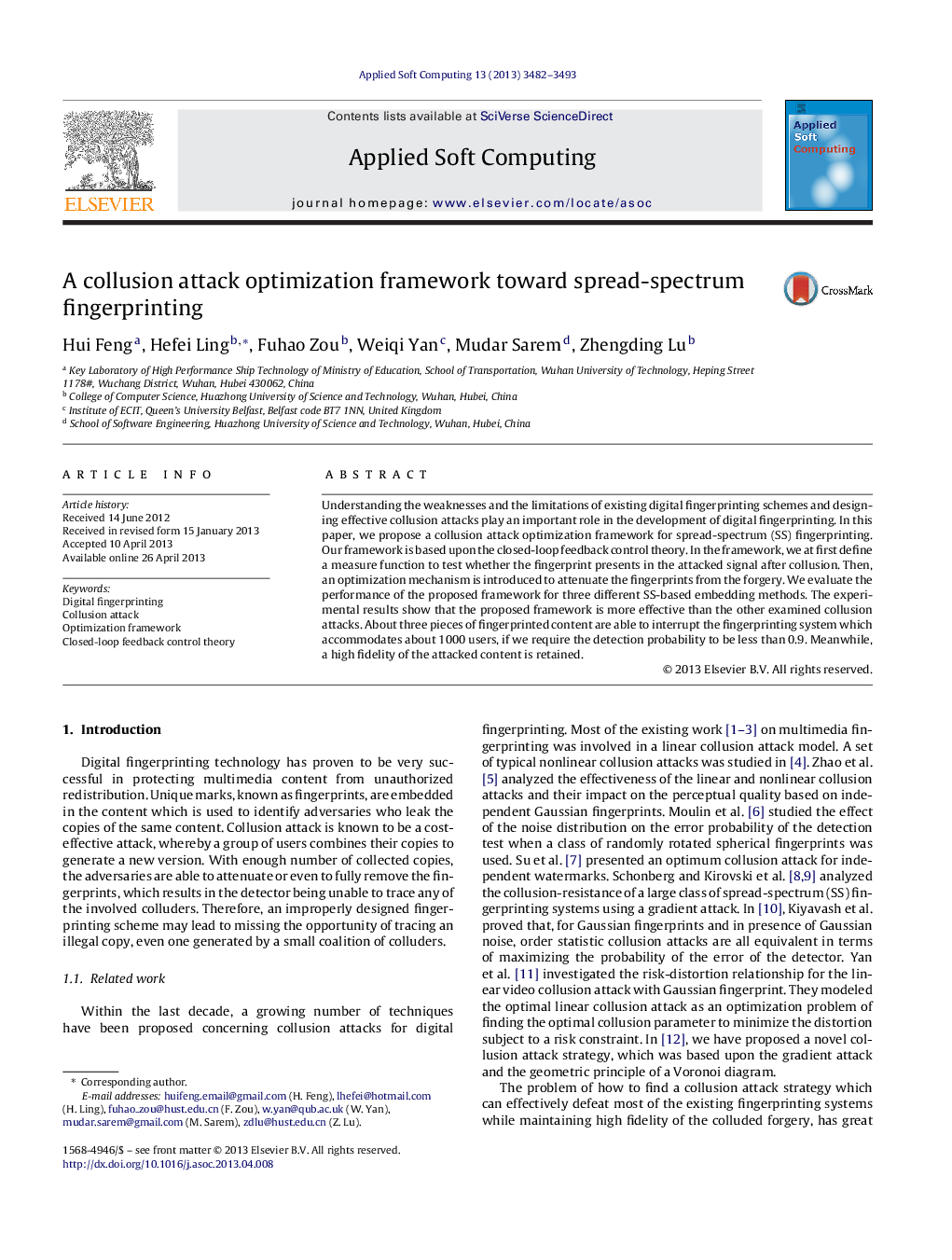| Article ID | Journal | Published Year | Pages | File Type |
|---|---|---|---|---|
| 496211 | Applied Soft Computing | 2013 | 12 Pages |
•A collusion attack optimization framework for digital fingerprinting is proposed.•The framework is based on the principle of closed-loop feedback control theory.•A measure function and an optimization mechanism are proposed in the framework.•A fingerprint estimator is employed to approximate the embedding parameters.•The experimental results show the efficiency of the proposed framework.
Understanding the weaknesses and the limitations of existing digital fingerprinting schemes and designing effective collusion attacks play an important role in the development of digital fingerprinting. In this paper, we propose a collusion attack optimization framework for spread-spectrum (SS) fingerprinting. Our framework is based upon the closed-loop feedback control theory. In the framework, we at first define a measure function to test whether the fingerprint presents in the attacked signal after collusion. Then, an optimization mechanism is introduced to attenuate the fingerprints from the forgery. We evaluate the performance of the proposed framework for three different SS-based embedding methods. The experimental results show that the proposed framework is more effective than the other examined collusion attacks. About three pieces of fingerprinted content are able to interrupt the fingerprinting system which accommodates about 1000 users, if we require the detection probability to be less than 0.9. Meanwhile, a high fidelity of the attacked content is retained.
Graphical abstractFigure optionsDownload full-size imageDownload as PowerPoint slide
